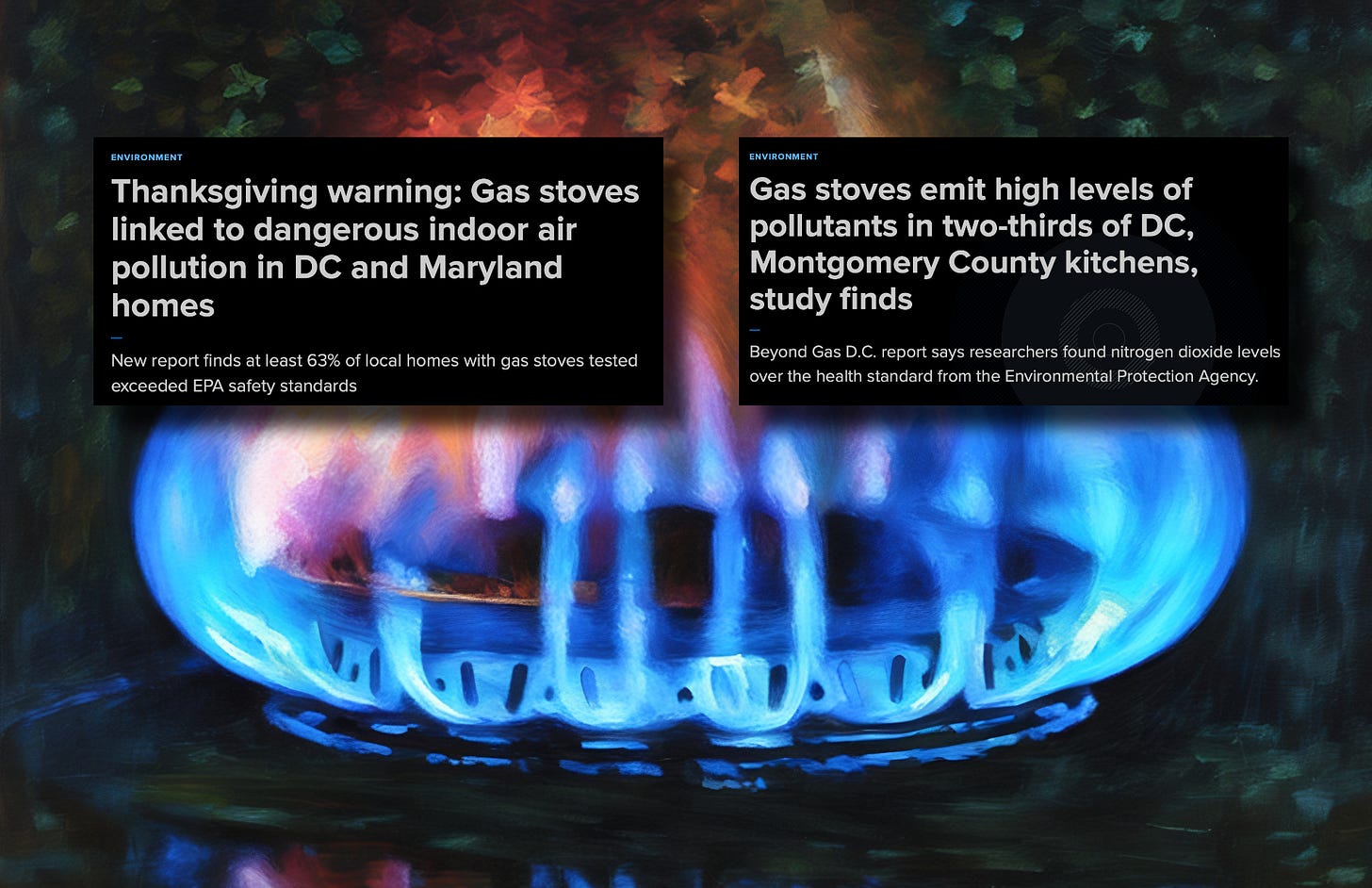D.C. news station quietly scrubs stories on gas stove health dangers
Advocates say Washington Gas, a WUSA9 sponsor, pressured the station to take down the stories. "News is absolutely being suppressed," one advocate said.
Every Thanksgiving, countless Americans spend hours hovering over gas stoves—a practice which could expose adults and children to dangerous levels of nitrogen dioxide emissions.
That’s why, for the last two years, public health advocates in D.C. and Maryland have been testing the indoor air quality of hundreds of home kitchens around the region. And just…



